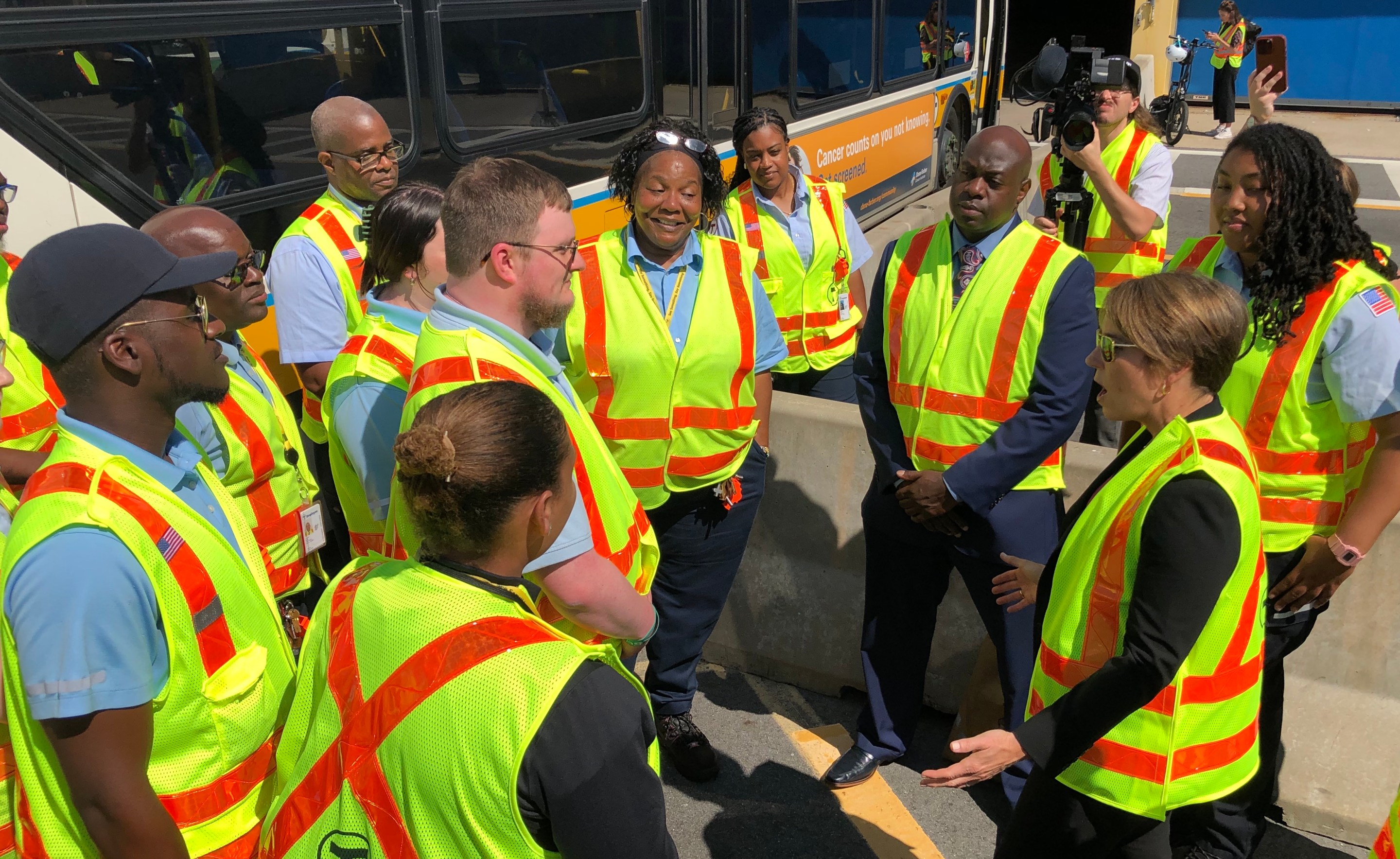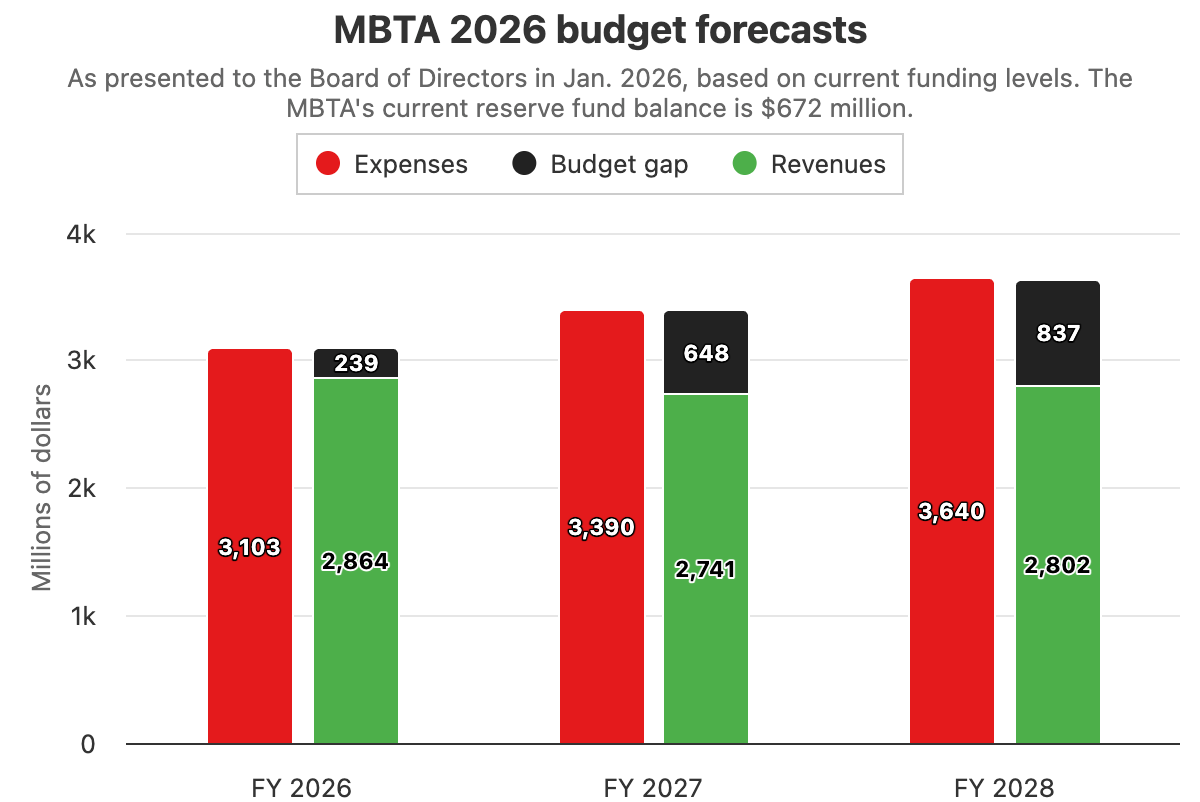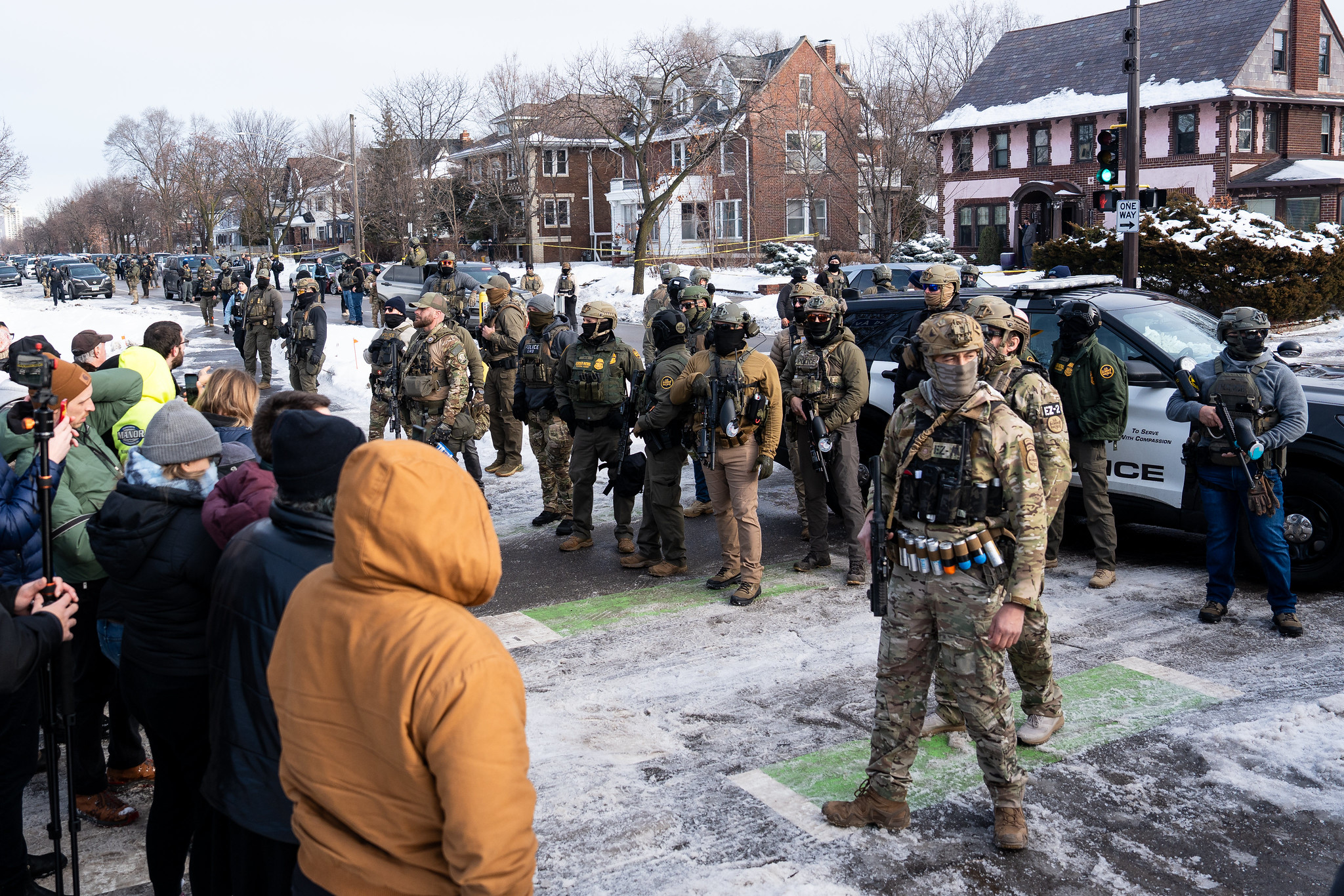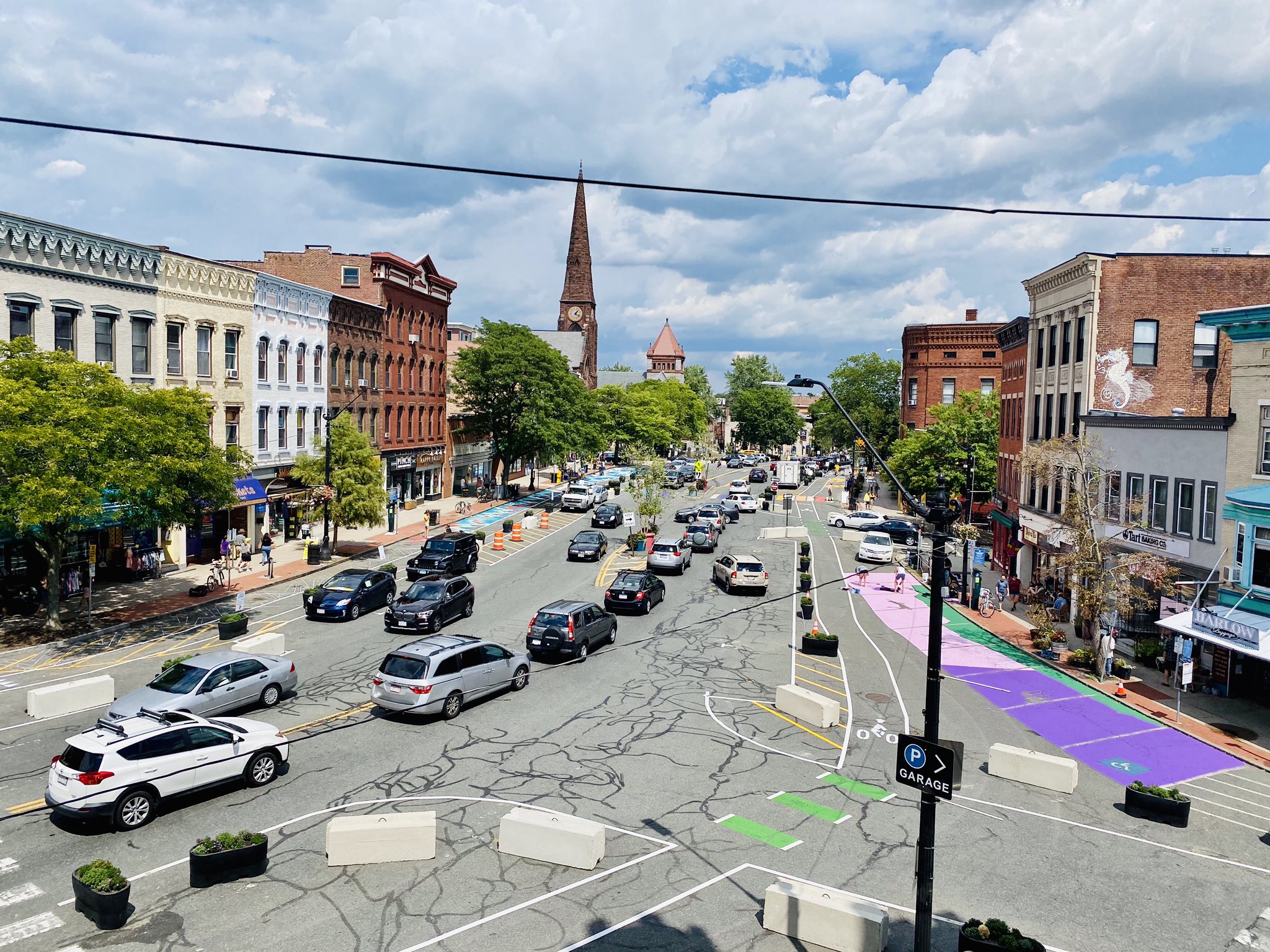At a recent MBTA board meeting, Secretary of Transportation Monica Tibbits-Nutt called the lack of women working for the T “embarrassing” and asked the agency’s management to do more to recruit women.
At the February 29th MBTA Board of Directors meeting, on the heels of Women’s History Month, Assistant General Manager for Diversity, Equity & Inclusion (DEI) at the MBTA Jabes Rojas presented updates on diversity at the MBTA.
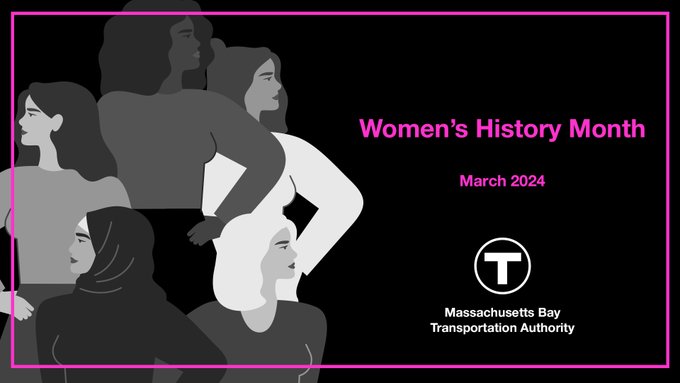
Since the 2020 murder of George Floyd, the MBTA has introduced new DEI initiatives including executive-level working groups, trainings, employee resource groups, mentorship programs, and funding for professional associations and career fairs.
The MBTA has reported an increase of representation in the workforce for Asian (from 3 percent to 6 percent) and Latino (from 7 percent 10 percent) people, but not yet reaching their goals of 7 percent and 13 percent, respectively.
Black and African American workers have surpassed the MBTA goal of 9 percent of workforce representation, but the percentage of hires have decreased from 34 percent to 29 percent from 2020 to 2024.
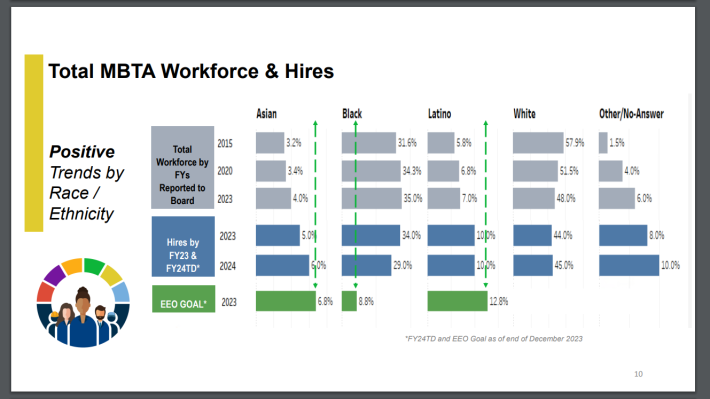
The proportion of women in the T’s workforce has hovered around 23 percent in recent years.
Rojas shared that while the T has not reached their goal to have at least 41 percent women in the workforce, they are still on par with other national and local transportation agencies.
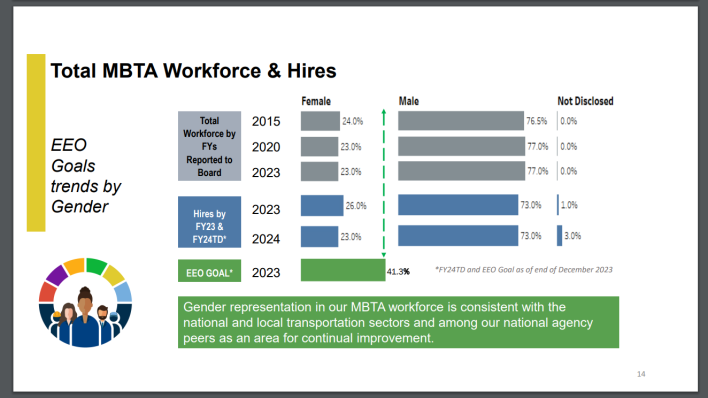
This prompted Secretary Tibbits-Nutt to ask, “So what are you doing to try and increase women in the workplace here? Because those are really, really bad numbers.”
Rojas responded that there have been some efforts, but acknowledged that it was an area for improvement.
After some back-and-forth about what new initiatives the MBTA has pursued and what peer agencies they could learn from in response to seeing the declining women in the workforce numbers, Sec. Tibbits-Nutt delivered a more forceful admonishment:
“I would really push you on this. Because I think, your peer agencies, it’s also horrible. Because I think for the first time in a very long time in transportation, you actually see women. That doesn’t happen very often, and I think with this administration, it’s the first time you actually see women. And I have to say, as a female secretary, the amount of times that I sit in a room where I'm the only woman, it’s embarrassing.”
Tibbits-Nutt noted that the private sector has done a better job at recruiting more-diverse workforces because they “know you can make more money if you’re more diverse. You just can. People want to work with entities that are more diverse.”
Secretary Tibbits-Nutt encouraged the MBTA to look to the private sector or other organizations that are improving in this critical area, because, “I'm telling you, I cannot sit through another year of these numbers,” concluded the Secretary. “And I appreciate, and I applaud the transparency, but nothing’s changed. You have to do better. You just have to. Because this can’t continue.”
“I would really push you on this because I think, in peer agencies, [gender disparities are] also horrible...You have to do better. You just have to." – Sec. Tibbits-Nutt
— TransitMatters (@transitmatters) March 15, 2024
📉 23% of the MBTA's workforce are women. The T must improve practices for hiring & retaining women workers. pic.twitter.com/ee3MlLkbrs
The full recording for the board meeting can be found here, as well as the agenda and slides presented regarding MBTA workforce diversity.
Union officials also acknowledge the need to do better
At a press conference for last week’s low-income fare approval, StreetsblogMASS asked two MBTA labor leaders if this is an issue that the T’s unions are also working on.
Mike Vartabedian, Executive Vice President at Mass. AFL-CIO and Business Representative of the International Association of Machinists and Aerospace Workers (IAM), District 15, which represents bus garage mechanics at the MBTA, emphasized that “it's a great way to make a living, a great trade to learn,” but acknowledged that it is “not traditionally a job that has attracted a lot of women. But that's changing… we're doing a little better, but we'd like to do a lot better.”
Jim Evers, President of the Boston Carmen's Union Local 589 told StreetsblogMASS that in terms of avenues to diversification, there is an apprenticeship program that the Carmen's Union is working to develop in collaboration with the MBTA.
Evers also claimed that "on the operations side, I think we're pretty close to being equal, in terms of gender parity.”
We fact-checked that with MBTA officials; according to a T spokesperson, currently 25 percent of MBTA bus, light, and heavy rail operators are women.
10 out 11 people listed on the executive board roster on the Carmen's Union website are men.
